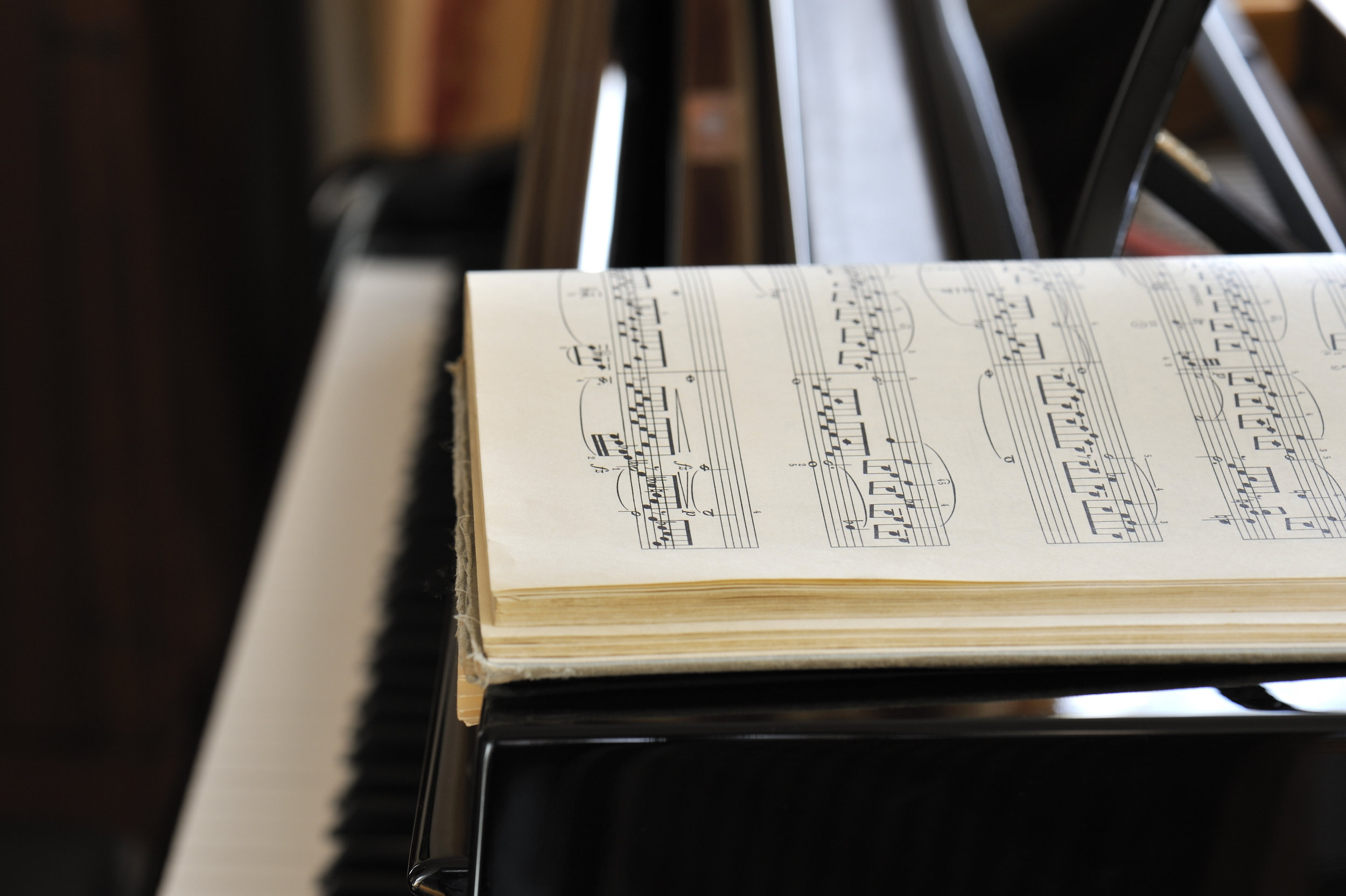
About The Teacher
Dr. Karen Gerelus is a third-generation piano teacher, musician, author, and scholar. She has completed an Associate diploma in Piano Pedagogy from the Royal Conservatory of Music (ARCT) and a Licentiate diploma in Piano Performance from Trinity College of London (LTCL). In 2010, she convocated from the University of Saskatchewan with a Bachelor of Arts, and in 2016 with a Master of Arts in Piano Pedagogy from the University of Ottawa. She recently finished her PhD at the Werklund School of Education, University of Calgary where her research focused on musical identities in adolescent piano students. Her other areas of interest include student-centered learning, arts-based research, and motivation. She is a proud member of the Royal Conservatory of Music’s College of Examiners.
Karen was awarded the national CFMTA Memorial Pedagogy Award for excellence in pedagogical training, she has won the CFMTA National Essay Competition twice, and received multiple research grants from the Alberta Foundation for the Arts. Karen’s scholarly work has been featured at conferences, in print, and on podcasts across North America.
Past teachers and examiners have commented on Karen’s “passion for teaching” and “warm and engaging manner.” Her lessons involve a variety of music – from minuets to mambos to Mission Impossible – to keep students motivated and teach sensitivity and compassion for all cultures and musical styles. Overall, her students play with beautiful technique, singing melodies, and high levels of personal satisfaction. Karen is an interesting balance of friendly and sophisticated, fun yet rigorous, and she is always full of new ideas.
About The Studio
The Cranston studio located in SE Calgary is set up two 6’1’’ grand pianos (Yamaha G3 & Yamaha C3). The full walkout basement studio provides ample natural light, with flowers, plants, and a cozy fireplace. Contemporary decor including new fixtures and furniture make it a wonderfully welcoming and creative environment in which to make music.
The music studio is set up with specific resources, such as a digital Bluetooth speakers and iPads for interactive learning. A substantial music library is often accessed during lessons as well as a reference section for more thorough understanding of specific composers and concepts. Piano benches, adjustable footstools, and pedal extenders are often used for very small students.
Individual lessons often involve fun teaching tools such as magic wands, dice, satin ribbon, or laser pointers. Group lessons involve rhythm instruments, stuffed animals, compositional activities, and flash cards. All teaching manipulatives serve to make lessons enjoyable and effective. Students are assured that no two lessons will ever be the same.
About The Lessons
A piano lesson is a consistent, weekly time where a well-qualified, energetic, and encouraging teacher passes knowledge, direction, and motivation to a student. The parent is present at lessons to observe and later provide support at home. The teacher and student together choose piano repertoire, plan the course of the year, and imagine goals to work towards. Each week, the teacher celebrates what has improved from the previous week and shows the student which direction to take next.
Their lesson time together may include a combination of the following:
Written theory: drawing musical notation and understanding the structure of music.
Technical exercises: playing “warm ups”, major and minor scales, chords, arpeggios, Dominant and Diminished 7ths, etc.
Piano Repertoire: music of various genres (folk, Classical, jazz, etc.) which is appropriate for the student’s age and ability.
Review Pieces: repertoire which has been learned, memorized, and have become easy and fun to play!
Duet playing: performing duets (2 players simultaneously) with the teacher or another piano student.
Rhythmic and sight-reading exercises: using rhythm instruments to develop pulse, metre, and steadiness, and playing never-before-seen music.
Ear training and listening development: for young students, this is as simple as identifying rising, falling, or repeating pitches. For advanced students, this is practiced with melody playback, identifying intervals, or naming cadences.
Composition: writing your own music for pleasure or competition.
Improvisation: noodling around on the piano until you find a neat sounding tune.
Recording: creating tracks to share by email or on YouTube with family and friends.
A piano lesson is not a weekly event where everything the student needs to improve their skill is taught, practiced, and polished in a neat little package. It is the starting point for the projects to follow, a new path set by the teacher, and a constant encouragement to move forward. Once a student leaves the studio, this is where parents take over as “home coach” to develop what has been discussed at the lesson.
For example, a Level 2 RCM student might expect to spend 20 - 25 minutes daily at the piano. There is really no easier or softer way to say that. Without that level of effort, the material will be consistently difficult; if the music is difficult, it will never seem easy; if it never seems easy, the student will not find it fun; it they don’t find it fun, then what’s the point?! There is a magical spiral where success breeds more success but none of it happens without ongoing effort.




